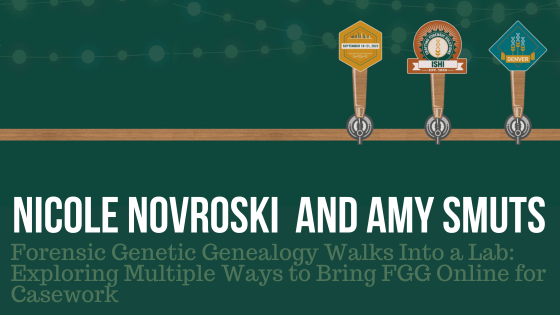In response to the growing demand for genetic genealogy in cold and violent crime cases, forensic practitioners worldwide are exploring the who, what, when, where, and how to implement forensic genetic genealogy alongside their existing workflows. Providing these services via public laboratories democratizes genetic genealogy in such a way that investigators are not reliant solely on outsourcing DNA work to private and/or commercial entities. As consortiums, governing bodies, and legislation continue to be created, forensic laboratories are hard at work assessing the possibility of introducing a new workflow to address the need for genetic genealogical testing in-house.
In the past year, a growing number of laboratories have introduced PCR-based targeted amplification as the primary workflow for genetic genealogy, given its’ compatibility with publicly available genealogical databases such as GEDmatch. However, additional methods exist for generating high-quality SNP data from low-level and degraded samples.
In their presentation at ISHI 34 this year, Nicole Novroski and Amy Smuts will provide a detailed overview of three approaches (PCR-based targeted amplification (ForenSeq Kintelligence), global screening array (Infinium Global Screening Array; (GSA)), and whole-genome sequencing (WGS; Illumina DNA Prep)) that have been developmentally validated and/or internally validated for casework operations at the UNT Center for Human Identification. We will discuss the benefits and limitations for each approach (using available data to-date), including suitable sample type(s), chemistries, technological and bioinformatic requirements, and data interpretation capabilities and challenges.
What is one key learning that attendees will be able to take back to the lab and implement based on your presentation?
Nicole: A better understanding of how casework laboratories can implement FGG in their space, using the equipment they may already have.
Amy: How to assess, validate, and implement SNP technologies for forensic genetic genealogy purposes.
Do you think anything in your presentation will surprise the audience? If so, can you give us a teaser?
Nicole: Overall, I believe that the community knows/understands very little about WGS/imputation as it relates to genetic genealogy. So, I’m hopeful that after our talk, the audience will feel more comfortable with these concepts.
Amy: The cost of running samples for FGG. Spoiler alert: it’s expensive.
Who in the audience will benefit most from your presentation? If someone was interested in learning more about your topic, do you have recommendations for resources?
Nicole: Any lab/group/analyst interested in bringing FGG online (and/or the implementation aspect) will likely benefit from our talk.
Amy: Any lab personnel interested in how to validate and implement FGG.
What inspired you to seek out a career in the forensic field?
Nicole: I was first inspired in high school, but it is the constant evolution of the field, the excitement of research, and forensic science education that keep me passionate about my future in forensic genetics.
Amy: A natural interest in science.
If you could go back in time, what advice would you give to your younger self as you were starting out?
Nicole: Interestingly, I’m very happy with the path I’m on. But, if I could go back in time, I would have loved to do a placement/exchange internationally in Europe or NZ/Australia.
Amy: Be aware of burnout and trauma from years and years of casework.
If you had to pick one thing, what do you enjoy most about your job?
Nicole: The novelty that each new project brings – the field of forensic genetics in constantly in flux.
Amy: My coworkers.
If you currently work in the lab, or have in the past, what’s the weirdest thing you’ve ever collected DNA from?
Nicole: When I worked at the OCME in NYC, the NYPD would often get creative when collecting suspect exemplars. My time there was always so exciting because you never knew what would be inside the evidence bag!
Amy: Anything and everything.
If you’ve attended ISHI in the past, what do you most enjoy about coming to the conference?
Nicole: Always my favorite question – I love the networking and connections with colleagues old and new. For those attending for the first time, make the most out of your trip! There are so many invaluable learning and connection opportunities that can only be fulfilled if you show up and engage!
What is one item on your bucket list? Have you checked if off yet?
Nicole: I’ve always wanted to write a novel – my goal is before I turn 40… So, I still have a couple of years. Wish me luck!
Amy: Swim with sharks, and yes.
What’s one thing that others may not know about you?
Nicole: I have my motorcycle license and enjoy getting outside on the bike! It’s definitely not my strongest skill, but I love learning and improving in everything that I do! 🙂
Amy: They know everything because I have no poker face.
WOULD YOU LIKE TO SEE MORE ARTICLES LIKE THIS? SUBSCRIBE TO THE ISHI BLOG BELOW!
SUBSCRIBE NOW!


